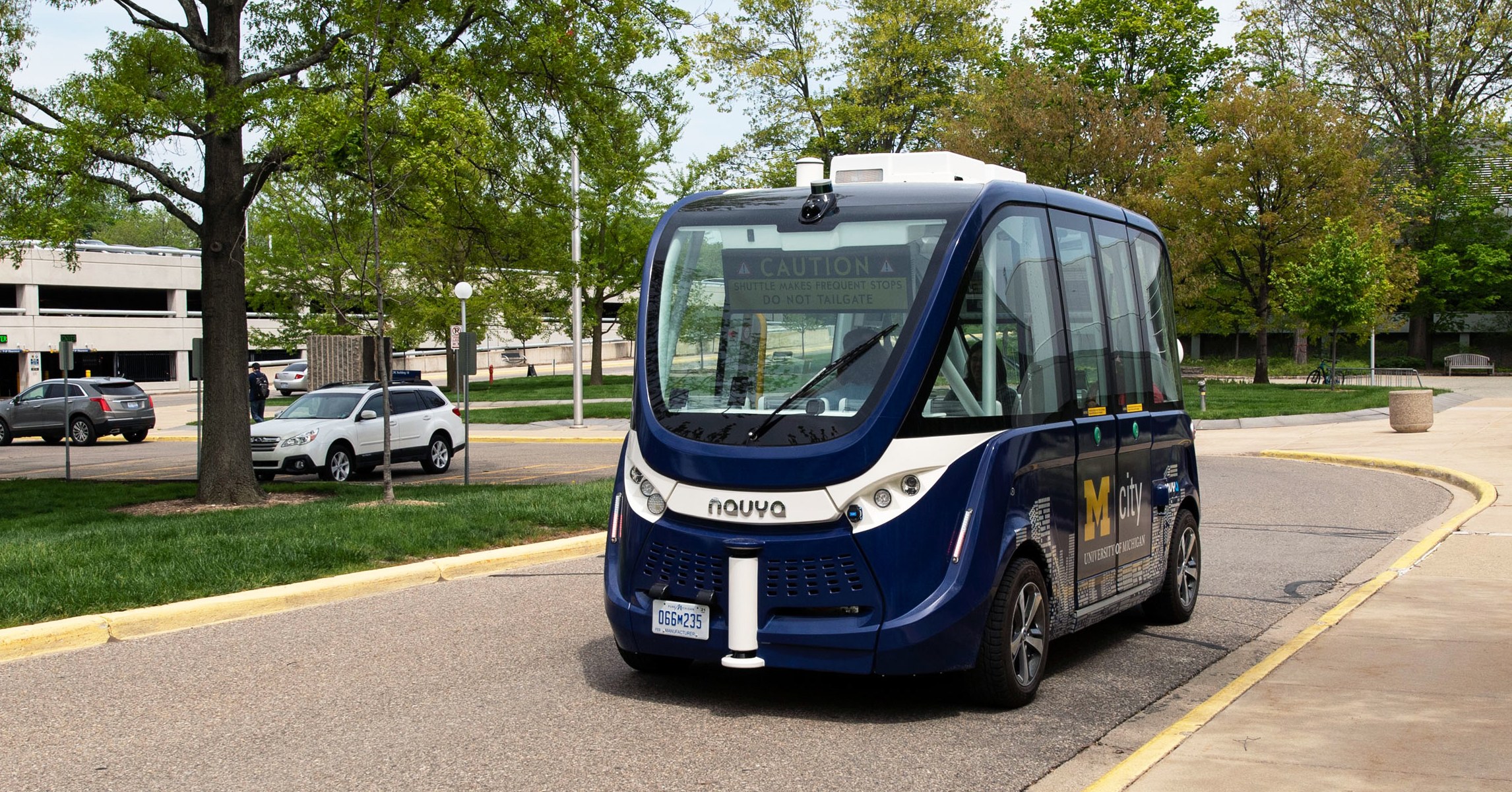
Photo Credit: University of Michigan
University of Michigan to Test Reactions to Robo Cars
How do you act when you’re excited? How about a little nervous? Bored? Full-on freaked out? If you happen to hop on one of the two very special shuttles that are now running 1-mile loops around the University of Michigan’s North Campus, a bunch of people with fancy degrees may very soon find out.
Those shuttles will drive themselves. Researchers affiliated with the University of Michigan, the marketing firm JD Power, and Navya, the French maker of autonomous vehicle tech are going to spend the next year studying how humans interact with, use, and feel about the autonomous vehicles, which will have human operators to deal with passengers and for emergencies. With the help of rider and community surveys, Wi-Fi data, and camera footage from inside and outside the vehicle, they expect to compile a lot of data.
The players in autonomous vehicle space are many, as are their pilot projects. Phoenix-based Local Motors (and its Olli van) has tested in Europe and the US. Detroit-based May Mobility has hosted demo projects in Florida and Michigan and says it will announce its first commercial project any day now. EasyMile has tested on public roads in the Netherlands, Taiwan, and California. Drive.ai will start using its tech stack on shuttles in Frisco, Texas, this summer. In the U.S., Navya has taken its game not only to Michigan’s campus, but also to the University of Florida, the University of Minnesota and Las Vegas, where it’s very first day of operations had headline-grabbing fender-bender.
Researchers want to discover what makes the public less nervous and more likely to trust such vehicles. To that effect, researchers affiliated with this Michigan project will study what goes on inside and outside the shuttle: where riders choose to sit, when they decide to ride, and how drivers, cyclists, and pedestrians react to the driverless thing moving around them. They’ll also use surveys to understand how perceptions change as the pilot progresses.
They already expect a slow, steady increase in faith. “We anticipate once riders see what’s going on, that’s going to shift their attitude into something that’s more positively associated with self-driving,” says Kristin Kolodge, the executive director of JD Power’s human-machine interface practice, which studies how consumers interact with new vehicle tech.
Read more of Aarian Marshall’s article in wired.com







Leave A Comment